'I don't want my children to live in the world my grandparents faced': Antifa in their own words
The so-called ‘Antifa’ are a radical political movement to combat fascist, alt-right and white supremacist ideologies. And despite criticism, activists say they're not going anywhere
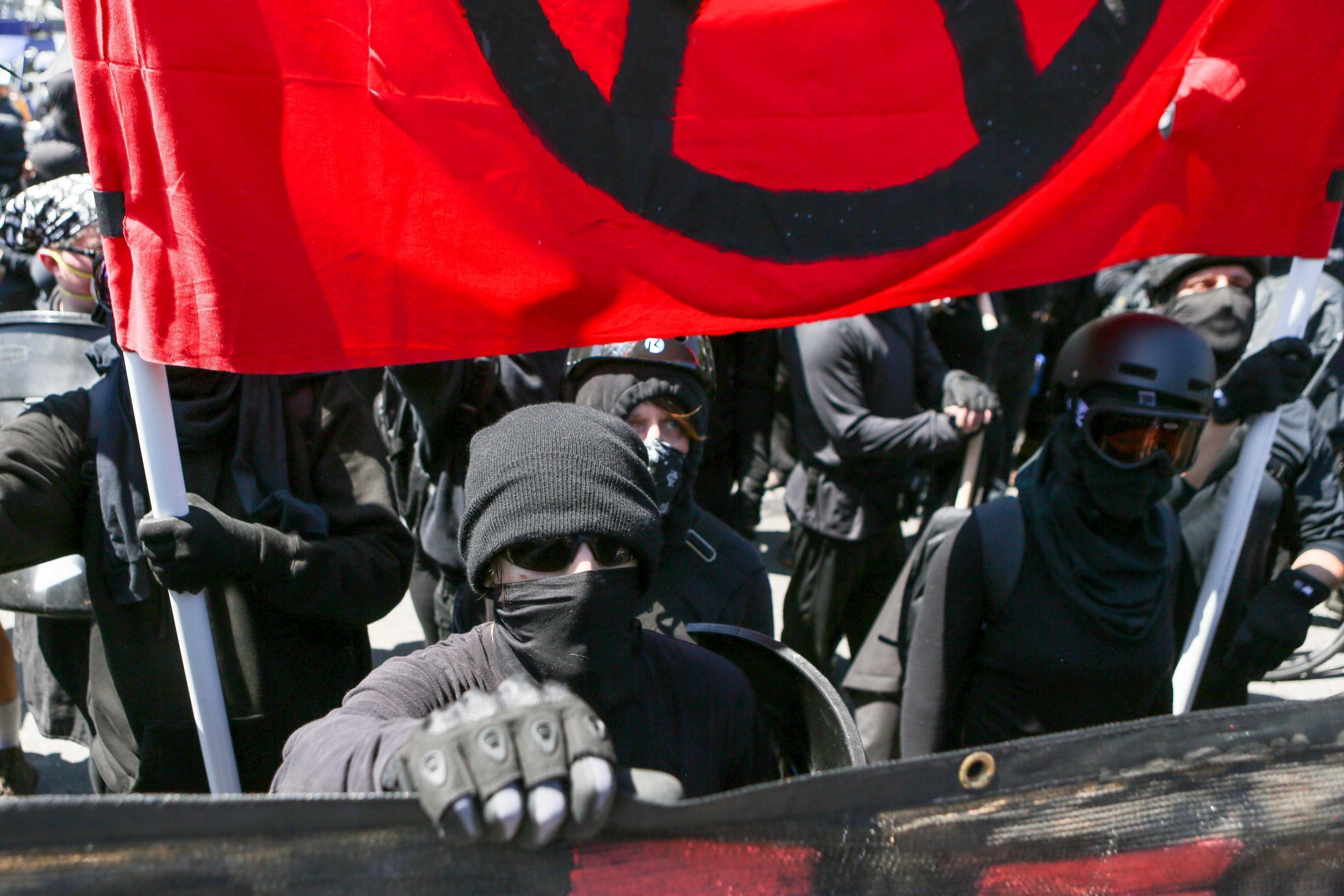
Your support helps us to tell the story
From reproductive rights to climate change to Big Tech, The Independent is on the ground when the story is developing. Whether it's investigating the financials of Elon Musk's pro-Trump PAC or producing our latest documentary, 'The A Word', which shines a light on the American women fighting for reproductive rights, we know how important it is to parse out the facts from the messaging.
At such a critical moment in US history, we need reporters on the ground. Your donation allows us to keep sending journalists to speak to both sides of the story.
The Independent is trusted by Americans across the entire political spectrum. And unlike many other quality news outlets, we choose not to lock Americans out of our reporting and analysis with paywalls. We believe quality journalism should be available to everyone, paid for by those who can afford it.
Your support makes all the difference.America is a country of violence – violence that has, for too long, been the dominion of the right. So says a burgeoning group of left-wing American activists who are ready to pick up arms in the fight for peace.
“Violence is everywhere in this society,” Michael Novick, a member of Anti-Racist Action Los Angeles, told The Independent. “Poverty is violence. Evictions are violent. Police brutality and racist murders are violent ... the US is more violent than ever.”
Mr Novick is an Antifa activist – part of a loosely organised group of people who aim to stamp out any remnants of fascism in the United States, even if it means resorting to force.
“Antifascists generally, and Antifa in particular, recognise that the battles – including physical ones – to defend human rights and human lives are taking place right now, not in some science fiction future ‘when the revolution comes’,” Mr Novick said.
Antifa hurtled into headlines this summer, as they engaged in increasingly high-profile battles with far-right groups in Oregon, California, and Boston. In August, after Antifa turned up to protest a white supremacist rally in Charlottesville, Virginia, they even caught the attention of the President.
"They show up in the helmets and the black masks and they have clubs and everything – Antifa!” Donald Trump exclaimed at a rally.
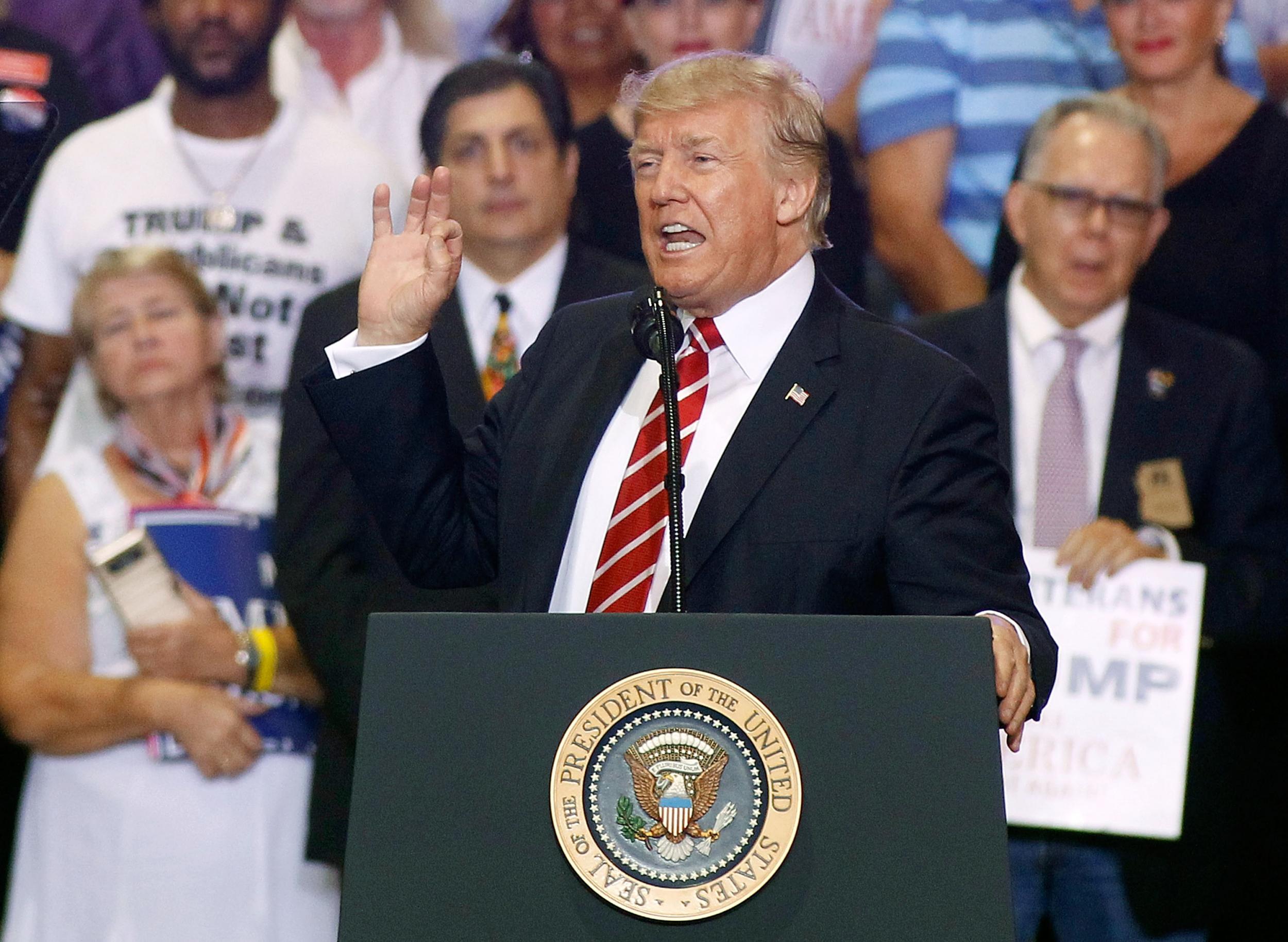
That being said, the Antifa aren’t an entirely new phenomenon. The movement emerged in Europe in the 1920s, in response to the growing power of fascist leaders like Mussolini and Hitler. According to historian Mark Bray, their tactics inspired much of the Chinese resistance to Japanese imperialism, and the Latin American resistance to various dictators.
Antifa popped up in the US in the 1980s, in response to the growing prominence of neo-Nazi groups. They frequented punk shows and alternative rock concerts – where “skinheads” were known to congregate – and combated the groups’ racist messages with literature of their own. In the 1990s and early 2000s, they showed up at protests against globalisation and unchecked capitalism.
Now, Antifa activists say, they are responding to a new wave of racist, sexist, far-right violence – one that is increasingly receiving protection from the government. Their view, as Mr Novick put it, is that “a new, more naked white and male supremacy is becoming the order of the day”.
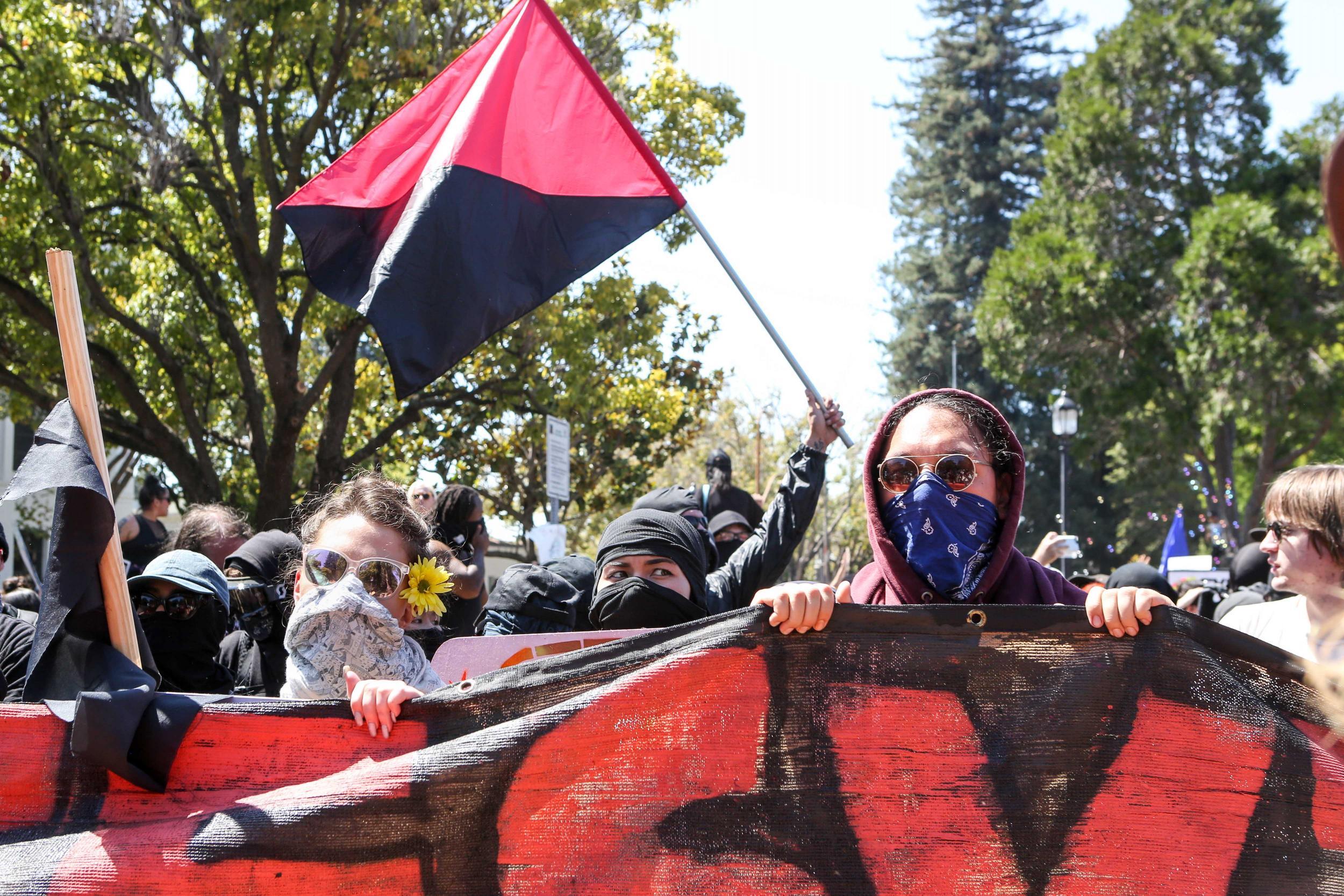
Statistics do show an increase in far-right violence of late. The Anti Defamation League, a Jewish charity, reported an 86 per cent spike in antisemitic incidents in the first three months of 2017. The Council on American Islamic relations reported a 91 per cent increase in anti-Muslim incidents this summer. According to the Southern Poverty Law Centre, almost 900 incidents of anti-black, anti-Muslim, anti-immigrant, anti-woman, or anti-LGBTQ violence occurred in the week after Donald Trump’s election.
In March, a white army veteran fatally stabbed a black stranger on the streets of New York, allegedly telling police that he hated black men. Two months later, in Portland, Oregon, a man began screaming insults at two black women on his commuter train. When three other passengers tried to intervene, the man stabbed them all, killing two and injuring one.
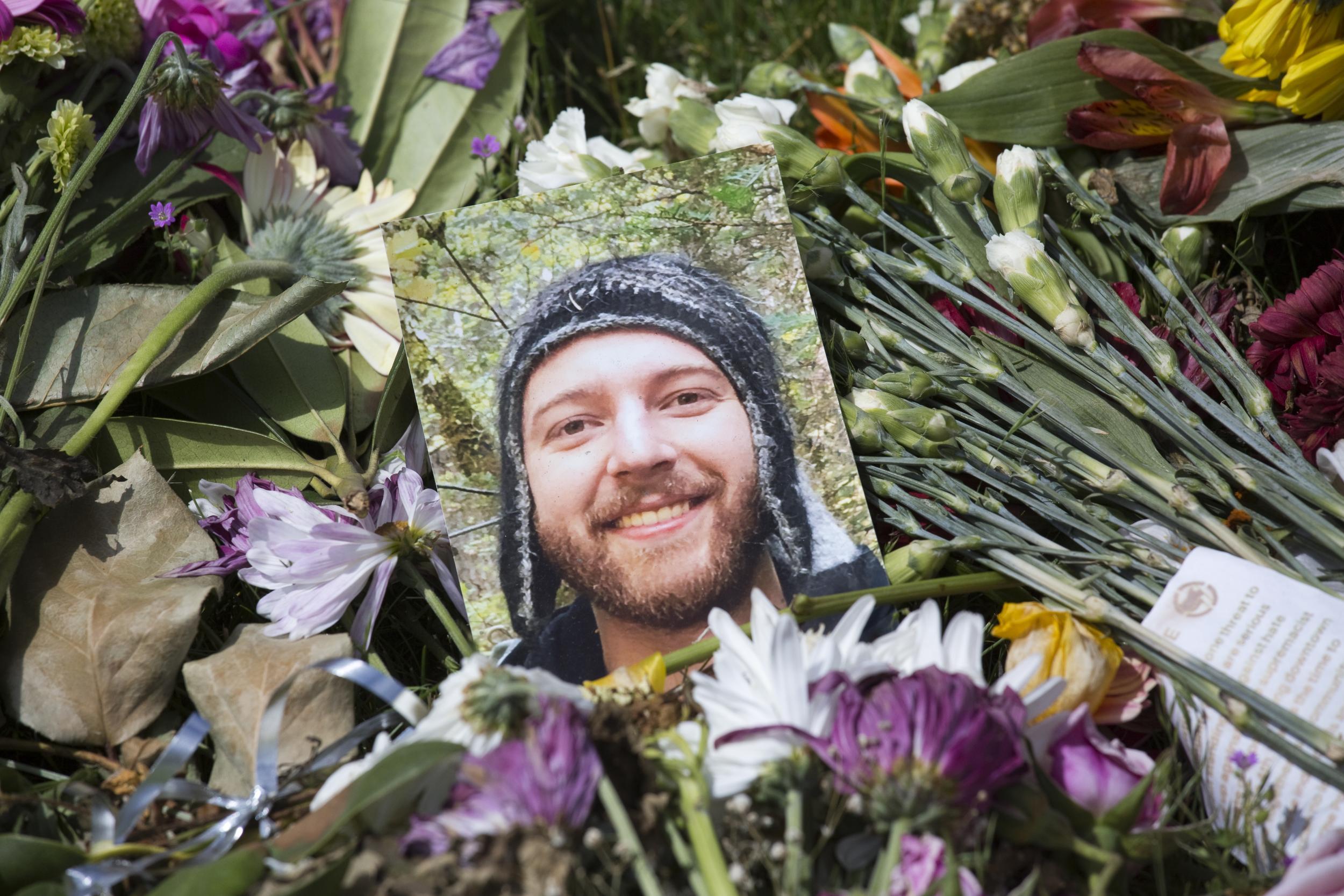
Amid this rising tide of violence, Antifa say they have no official outlet to turn to for defence.
“Antifa have learned, and call attention to the fact, that oppressed and exploited communities and popular resistance movements cannot rely on the cops or the courts to defend us from Nazis, because the cops and the legal system are often guilty of or complicit in racist and sexist violence themselves,” Mr Novick said.
The election of Mr Trump, meanwhile, convinced many activists they could take no solace in their government, either.
“We have people in the Trump administration that are one circle removed from [white nationalist] Richard Spencer,” said James Anderson, a contributor to anarchist web site It’s Going Down. “The Trump administration has definitely given a cover to white nationalists, the alt-right, and neo-Nazis.”
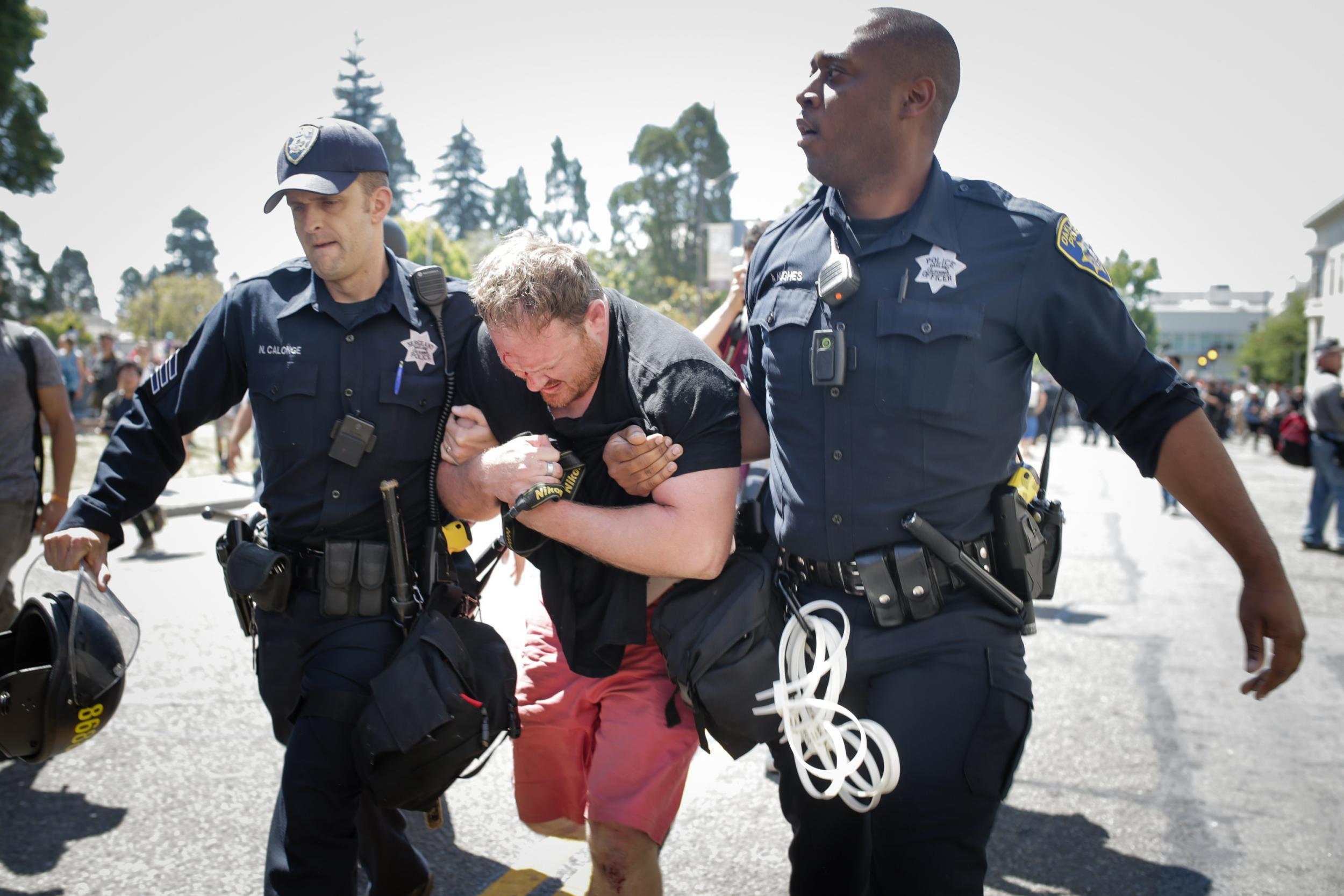
That sentiment hurtled into the national consciousness on one hot, August weekend in Charlottesville, when hundreds of white supremacist protesters gathered for the “Unite the Right” rally. Protesters turned out in militia gear, carting guns, while counter-protesters toted pepper spray and water bottles filled with urine. As fighting broke out, police largely stood by.
Dozens of people were injured in clashes between protesters and counter-protesters. One woman, 34-year-old Heather Heyer, was killed when an alleged neo-Nazi rammed his car through a crowd of counter-protesters.
Photos from the rally immediately dominated news coverage. Past presidents condemned the blatant bigotry on display. Mr Trump eventually took to his presidential podium to denounce the “violence and hatred” at the rally – on both sides.
Suddenly, white supremacists were in the spotlight, alongside their Antifa counterparts. And while many Americans were stunned by what took place, Mr Anderson says they should have seen it coming.
“These [previous murders] should have all been warning signs, just like Heather Heyer’s murder was,” he said. “But for some reason an African American man killed by a guy in New York … somehow his death was not the same warning signal as Heather Heyer’s death.”
He added: “I think that if people had taken these earlier murders more seriously – as they should have – that we could have prevented what happened in Charlottesville.”
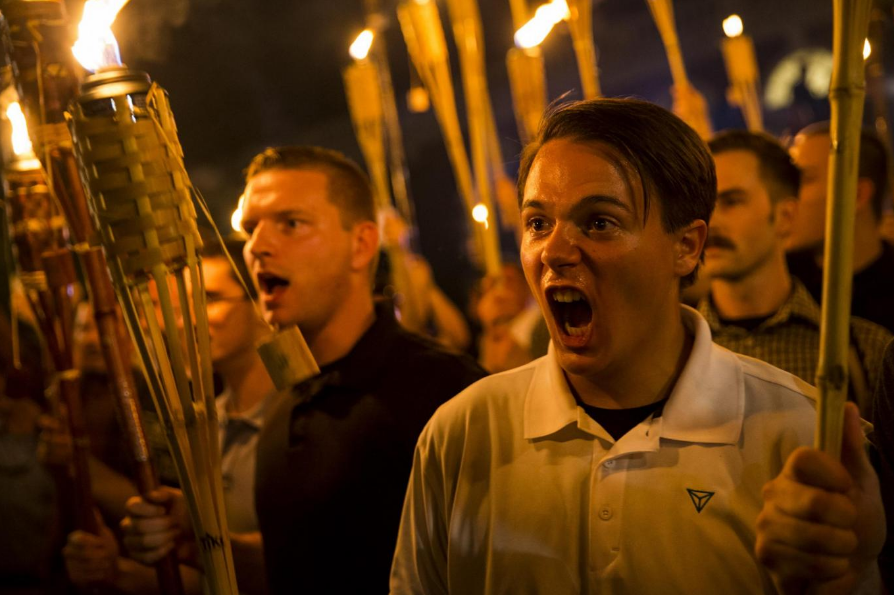
A similar feeling may be what lead more and more Americans to pledge themselves to the Antifa cause. Mr Anderson’s web site, which used to receive about 300 views per day, now receives between 10,000 and 20,000. According to NYC Antifa, the group’s Twitter following nearly quadrupled in the first three weeks of the year. These days, they boast more than 21,000 followers.
And the re-energised Antifa aren’t shy about their tactics. In Berkeley, California, weeks after the rally in Charlottesville, some 100 black-clad Antifa activists turned up for a protest against racism. Videos from the rally show Antifa activists smacking Trump supporters to the ground, throwing water bottles, blasting pepper spray and even ganging up on a single victim.
Asked about such displays of violence, a member of the Atlanta Antifascists told The Independent: “Extreme-right and fascist organising inevitably leads to massive violence, displacement and murder when allowed to grow unchecked … Self-defence by communities and marginalised people against threats and attacks from the far-right is 100 per cent justified.”
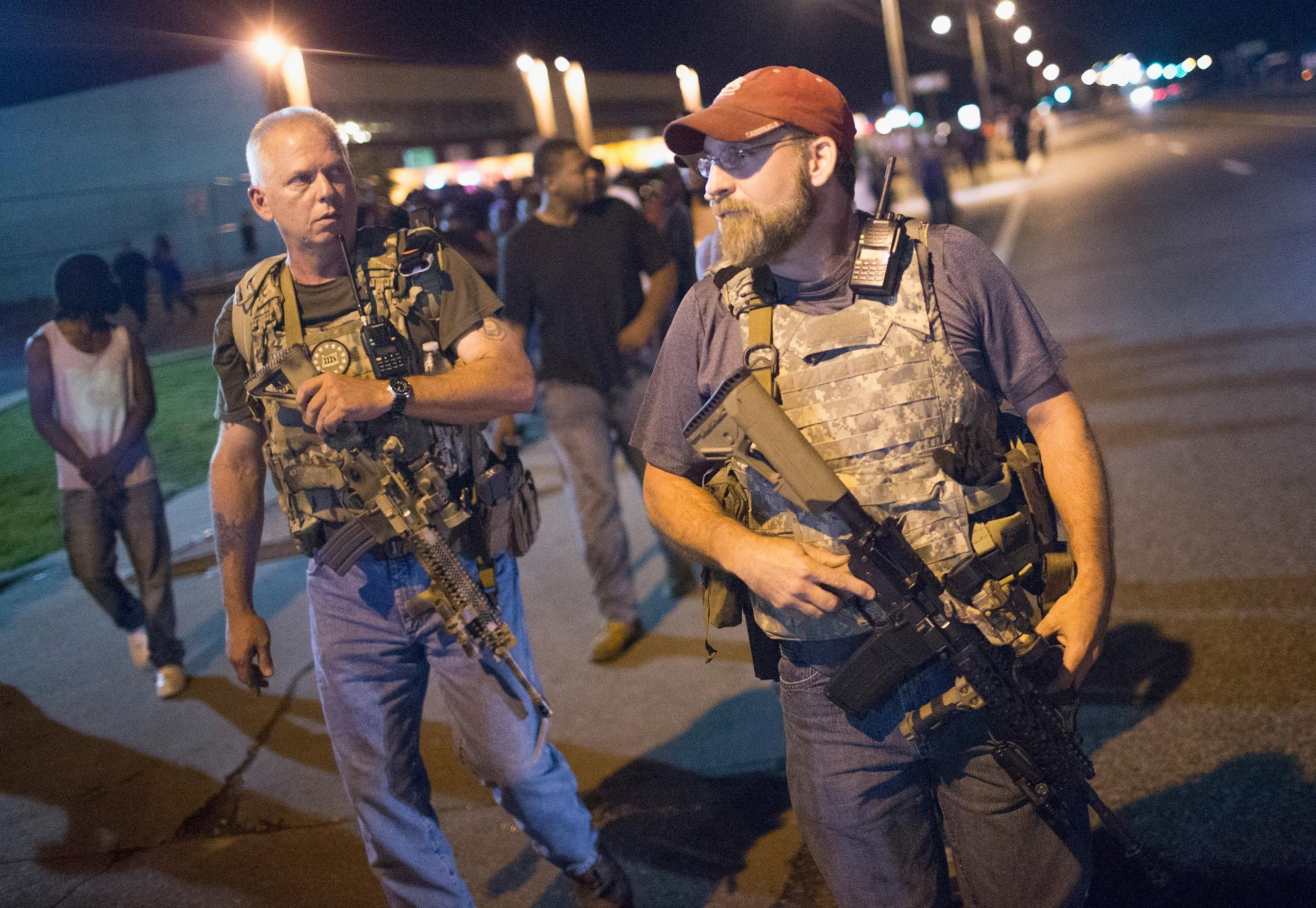
That isn’t the view of many in the mainstream, however – including many self-described liberals. Nancy Pelosi, a Democratic representative from California and the minority leader of the House, issued a statement after the Berkeley incident calling for the arrest and prosecution of those involved.
“Our democracy has no room for inciting violence or endangering the public, no matter the ideology of those who commit such acts,” Ms Pelosi said.
A former Obama administration official, Andy Slavitt, called the Antifa activists “idiots” and “animals”. Berkeley’s mayor, Andy Slavitt, said they should be classified as a gang.
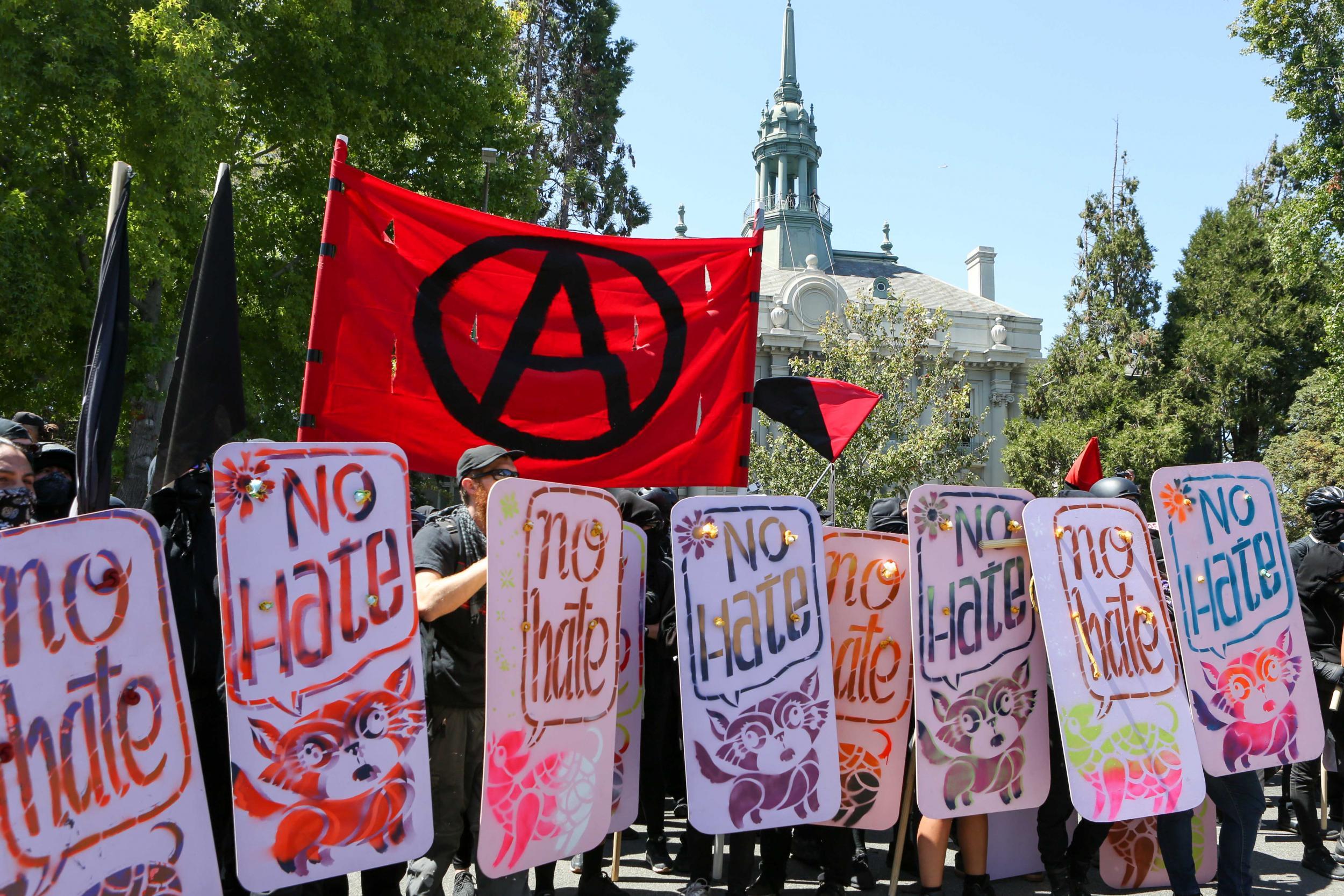
To Mr Anderson, and many Antifa activists, such comments are the inevitable backlash against effective demonstrations of working-class power.
“So much of the media is just terrified of anything that reeks of everyday, working class people self-organising,” Mr Anderson said. “The idea of antifascists actively engaging with the far right is very scary to them, because if they can do that in this arena, what’s to stop people from doing the same thing when it comes to evictions, or ICE raids, or mass layoffs, or stuff like that?”
He added: “I think there’s a desire to really put the boot heel down as far as saying, you know, ‘You’re not supposed to really do this. You’re supposed to be passive and hold signs and talk to people in power’.”
For the meantime, however, it seems the Antifa won’t be taking this advice. For some, violence feels like the only means of self-defence in an increasingly militant world. For others, the stakes of this fight just seem too high.
“I recently became a great-grandfather,” said Mr Novick, whose own father fled the Holocaust to take refugee in the US.
“I don’t want to see my children, grandchildren or great-grandson have to live in the kind of world my grandparents and parents’ generation faced.”
Join our commenting forum
Join thought-provoking conversations, follow other Independent readers and see their replies
Comments